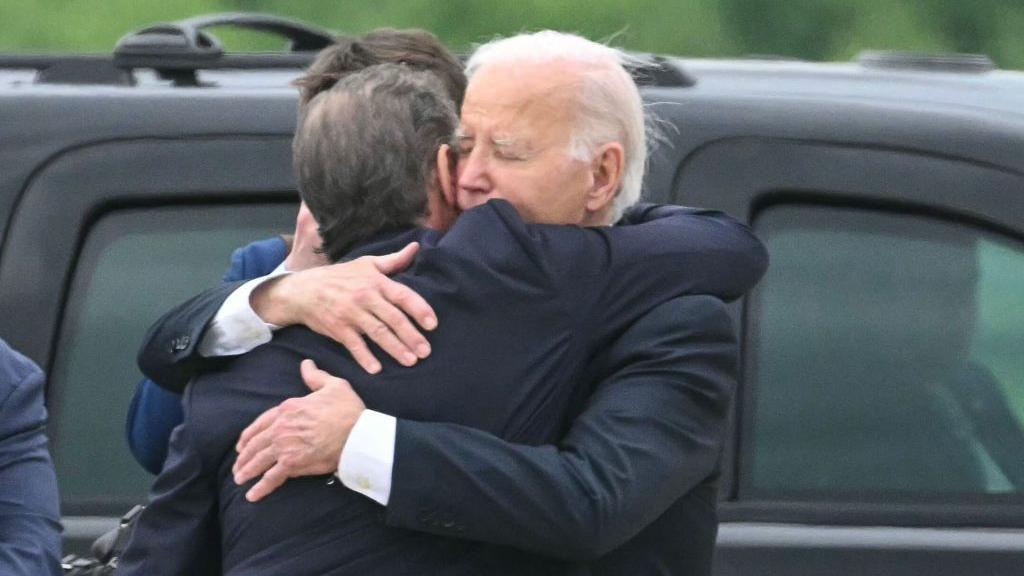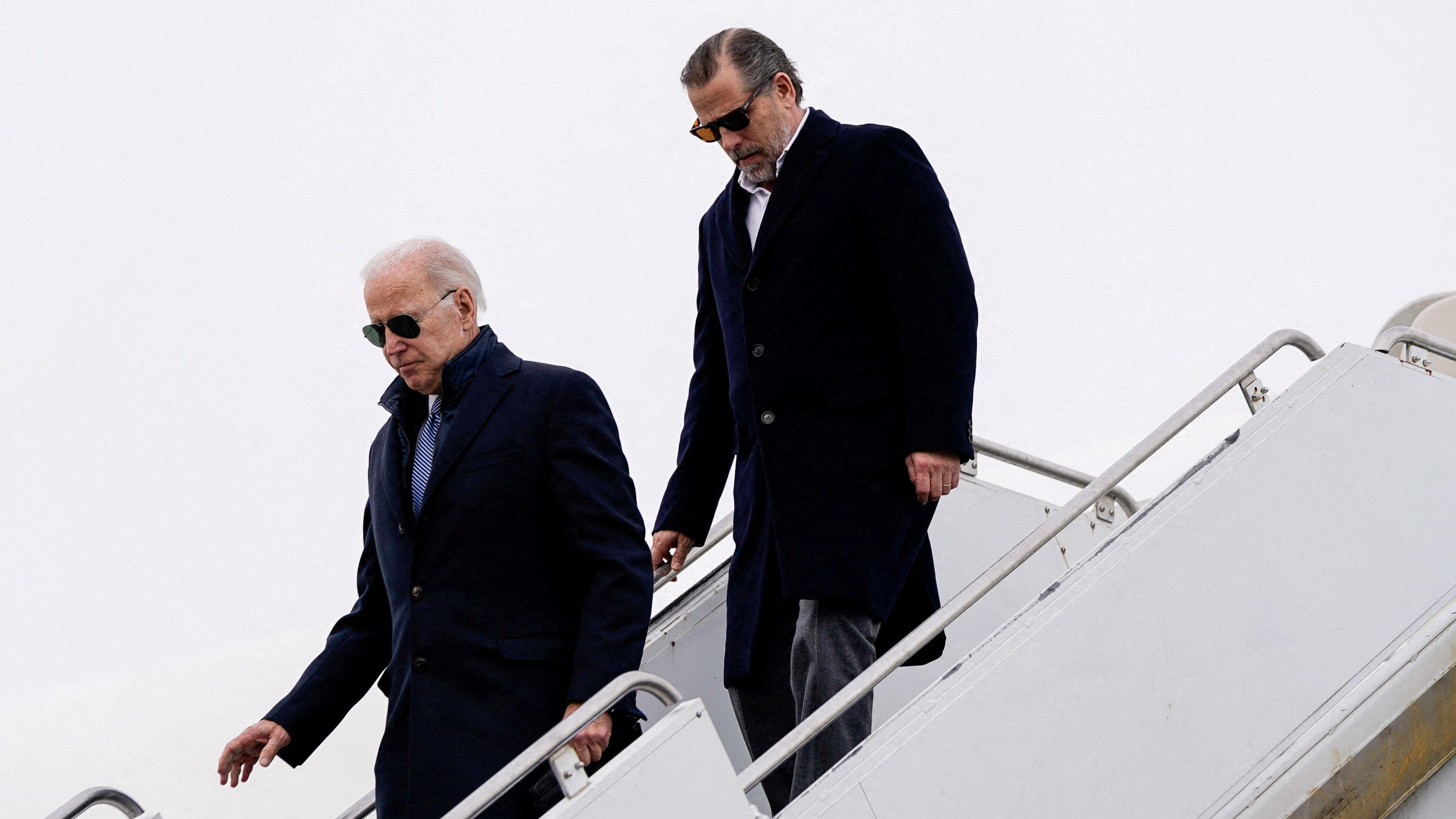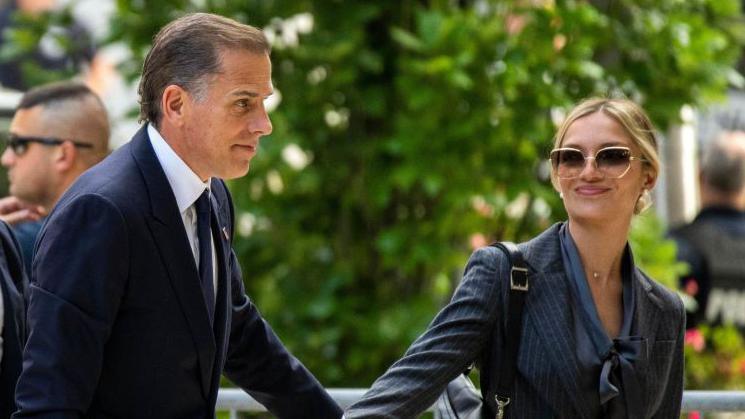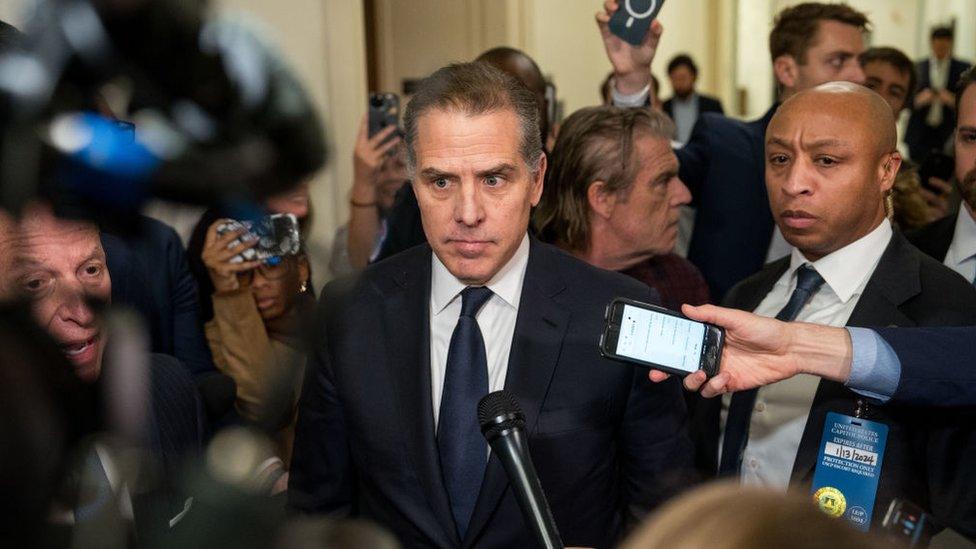Biden says he will not reduce son's sentence

- Published
President Joe Biden has said he would not use his power to reduce any prison sentence handed down to his son, a day after the White House declined to comment on the possibility.
Speaking at the G7 summit in Italy, the president said he would not commute Hunter Biden's sentence on a federal gun charge.
A Delaware jury on Tuesday found Hunter Biden guilty of lying about his drug use when buying a revolver in 2018.
"I said I abide by the jury decision. I will do that. And I will not pardon him," the president said Thursday.
In response to a question, Mr Biden also said he would not use his presidential power to commute - or reduce - his son's sentence.
Before the verdict, Mr Biden said he would not issue a pardon in the event of a guilty verdict.
However when asked about a commutation after the verdict was passed, White House spokeswoman Karine Jean-Pierre would not comment and referred to the president's earlier statements.
'Hunter Biden’s story is a story that all too many Americans know'
- Published12 June 2024
Hunter Biden guilty of all charges in gun trial
- Published11 June 2024
The struggles and scandals of Hunter Biden
- Published11 June 2024
US presidents have the power to commute sentences for defendants convicted of federal offences. They can also choose to issue outright pardons, vacating convictions entirely.
Commuting a sentence would leave the conviction intact, but replace a sentence given in court with a lesser one.
Presidents do not have the power of commutation or pardon in state-level cases.
"I'm extremely proud of my son, Hunter," President Biden said during Thursday's news conference. "He has overcome an addiction. He's one of the brightest, most decent men I know. And I am satisfied that I'm not going to do anything."
Hunter Biden pleaded not guilty to two charges related to lying about his drug use on a federal background check, and one for possessing a gun while addicted to or using drugs.
The 54-year-old claimed he was in recovery when he purchased the gun in October 2018.
In total, Hunter Biden faces up to 25 years in prison, though legal experts say a sentence that long is very unlikely.
Constitutional scholars disagree on whether a president’s pardon power includes himself, though Donald Trump - if he won the presidency in November - could be the first to try if he were to be convicted in either of the two federal criminal cases he faces.
Related topics
More on Hunter Biden
- Published11 June 2024

- Published11 June 2024

- Published11 January 2024
